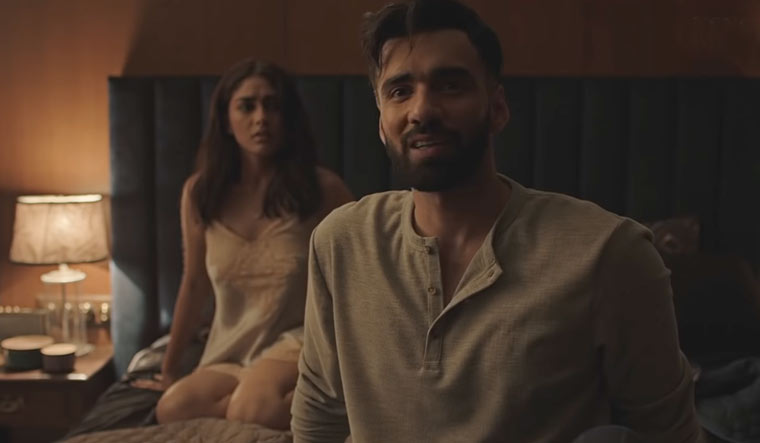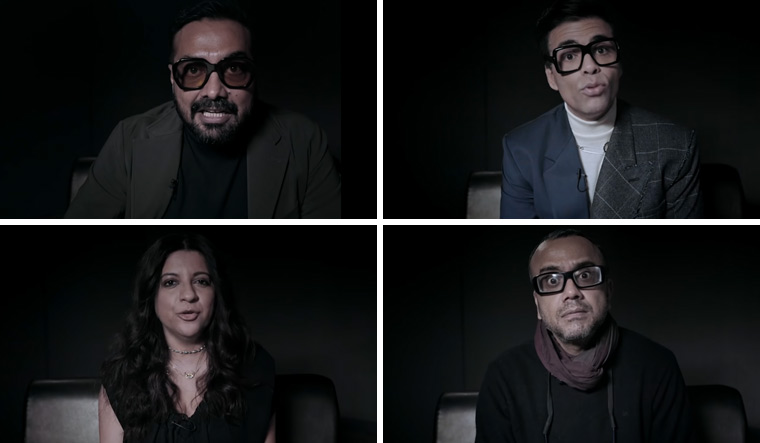In a dark room set up for video interviews, the light shines on four directors—Anurag Kashyap, Zoya Akhtar, Dibakar Banerjee and Karan Johar. After the anthologies Bombay Talkies (2013) and last year’s Lust Stories—it earned a nomination at the Emmys—the directors have now come together for a new flick, Ghost Stories. In the Netflix original film, releasing on January 1, 2020, they explore the dark realms of horror.
Each of them seems to be in disparate worlds. Kashyap is engrossed in his phone. He made a comeback to Twitter, after four months of self-imposed ban, to support the anti-Citizenship (Amendment) Act movement. Johar wants to talk about everything else but Ghost Stories. He nudges Banerjee, sitting next to him, to play Darr Lage Toh Gaana Gaa... from Yaar Mera (1972) on his phone. He wants it to be used for the promotions of Ghost Stories. Akhtar wants to talk about the fun she has had while experimenting with horror genre. Banerjee is paying attention to what everyone else is saying, and responding to everyone.
The theme for the film—ghost stories—was Johar’s suggestion. Based on the four-minute preview of each of the short, Johar’s film is the brightest of the lot. Starring Mrunal Thakur, Heeba Shah and Sukant Goel, it begins with a wedding scene. “Why did they [Netflix] have to start the trailer with the wedding. It is just one tiny part of that 30-minute film. Yes, I like weddings. It is the way it is, deal with it,” Johar screams, as everyone else laughs.
“I think from next time we should interchange the credits,” he says, adding that he wants to change the general perception about him. “Why do you want to?” Kashyap chips in. “Everybody talks about filmmakers and what they are akin to…. Your drama is like [no one else’s]. You are the Douglas Sirk of Hindi cinema,” he says. “I think next time we should not have our names on it. We should let people guess whose is what,” Akhtar comes up with an idea that everyone agrees on.
Akhtar’s short explores a classic ghost story which stars Janhvi Kapoor as the caretaker of an old woman in wheelchair (Surekha Sikri). Kashyap’s film is about a woman who has had a miscarriage and is pregnant again, but is haunted by the room she decorated for the child she never had, while Banerjee’s film is based “on dietary choices and a new way of looking at nutrition.”
Ask about the ghosts that haunt them on a day-to-day basis, all four director become serious. For Kashyap, it is the “ghost in power”. Akhtar says: “Being a woman in this country is horrific. I do not know any woman in India who lives without the fear of sexual assault.”
For Banerjee, the ghost lies in the process of “other-ing” based on religion, caste, gender or nationality. Johar’s ghosts are things that do not “allow you to express yourself freely in society, or breathe in your own skin—be it your identity as a person or your sexuality.”



